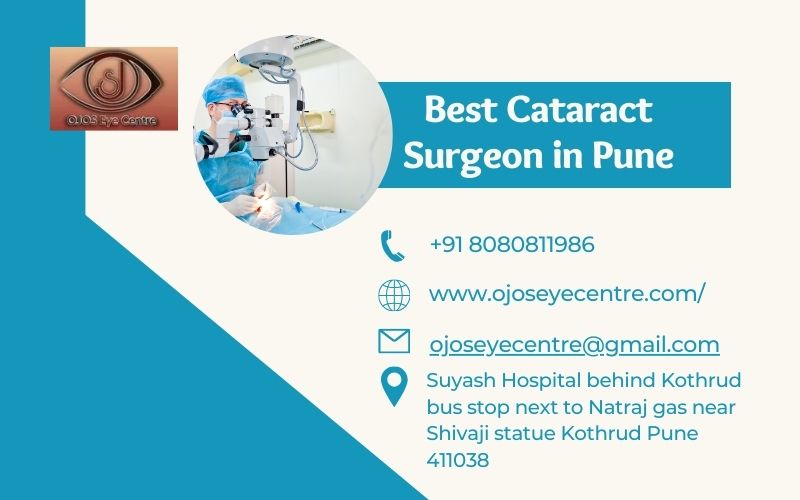Introduction to Cataracts
Welcome to our comprehensive guide on understanding cataracts! Have you been experiencing blurry vision or seeing halos around lights? You might be dealing with cataracts. In this blog post, we will delve into the causes, symptoms, treatment options, and surgical procedures for cataracts. Whether you're seeking answers for yourself or a loved one, Dr. Sagar Pathak is here to shed light on everything you need to know about this common eye condition. Let's embark on this enlightening journey together!
Causes and Risk Factors
Cataracts can develop due to a variety of causes and risk factors. One common cause is simply aging, as the proteins in the eye's lens break down over time, leading to cloudiness. Chronic conditions like diabetes can also increase the likelihood of cataract formation. Smoking and excessive alcohol consumption are known risk factors that can accelerate cataract development.
Excessive exposure to sunlight without proper eye protection may contribute to the progression of cataracts. Additionally, genetics play a role in predisposing some individuals to developing cataracts at an earlier age than others. Certain medications such as corticosteroids or diuretics have been linked to an increased risk of cataracts.
Other contributing factors include eye injuries, previous eye surgeries, and even radiation exposure. It's essential for individuals with these risk factors to be proactive about their eye health by having regular check-ups with an ophthalmologist specializing in cataract care.
Symptoms and Diagnosis
Do you experience cloudy or blurred vision? Maybe you're seeing double, or colors seem faded. These could be signs of cataracts developing in your eyes. As the clouding progresses, it may become harder to see at night or in bright light.
If you notice any changes in your vision, it's crucial to consult with an eye specialist promptly. An eye exam can help diagnose cataracts through a thorough evaluation of your visual acuity and eye health. Your doctor might also perform tests like a slit-lamp examination or dilated eye exam to assess the extent of the cataract.
Early detection is key as cataracts can worsen over time if left untreated. Remember that symptoms may vary from person to person, so seeking professional diagnosis is essential for tailored treatment recommendations based on your individual needs and eye health status.
Treatment Options
When it comes to treating cataracts, there are various options available depending on the severity of the condition. In the early stages, wearing prescription glasses or using brighter lighting may help improve vision. However, as cataracts progress and start affecting daily activities, surgical intervention might be necessary.
One common treatment option for cataracts is surgery. Cataract surgery involves removing the cloudy lens and replacing it with an artificial intraocular lens (IOL). This procedure is typically safe and highly effective in restoring clear vision.
Another non-invasive treatment option is using eye drops prescribed by your ophthalmologist to manage symptoms such as dryness or discomfort associated with cataracts. These drops can help alleviate some of the discomfort caused by the condition.
Discussing your specific situation with a qualified ophthalmologist is key in determining the most suitable treatment plan for your individual needs. It's essential to explore all available options before making a decision on how to proceed with managing your cataracts effectively.
Surgical Procedures for Cataracts
When cataracts progress to a point where they significantly impair vision and affect daily life, surgical intervention may be necessary. Cataract surgery is a common procedure that involves removing the cloudy lens and replacing it with an artificial intraocular lens (IOL). This surgery is typically performed on an outpatient basis and is considered safe and effective.
There are different types of cataract surgery techniques available, including phacoemulsification, extracapsular cataract extraction, and laser-assisted cataract surgery. Your eye doctor will determine the most suitable approach based on your individual case.
During the procedure, numbing eye drops or local anesthesia are used to ensure you remain comfortable throughout. The surgeon will make a small incision in the eye to access the clouded lens, break it up using ultrasound or laser technology, and then insert the new IOL.
Recovery from cataract surgery is usually quick, with many patients experiencing improved vision within a few days. It's important to follow post-operative instructions provided by your doctor carefully to promote healing and optimize outcomes.
Recovery and Aftercare
After undergoing cataract surgery, proper recovery and aftercare are crucial for the best outcome. Following the procedure, patients may experience mild discomfort or itching in the eye, but these symptoms typically subside within a few days. It's important to avoid rubbing or putting pressure on the eyes to prevent any complications.
During the recovery period, it is advisable to wear an eye shield while sleeping to protect the operated eye. Your doctor will prescribe eye drops to help with healing and prevent infection. These should be used as directed for optimal results.
While most patients notice improved vision shortly after surgery, full recovery can take several weeks. It's important to attend all follow-up appointments with your ophthalmologist to monitor progress and address any concerns promptly. Remember to avoid strenuous activities that could strain the eyes during this time.
Conclusion
Understanding cataracts is crucial for early detection and timely treatment. By being aware of the causes, symptoms, and treatment options available, individuals can take proactive steps to preserve their vision and maintain a high quality of life. Remember that regular eye check-ups with the best eye doctor in Pune are essential for monitoring your eye health and addressing any concerns promptly. If you ever require surgical intervention, rest assured that the best cataract surgeon in Pune can provide professional care to help restore your vision effectively. Prioritize your eye health today to enjoy clear sight tomorrow!





Comments